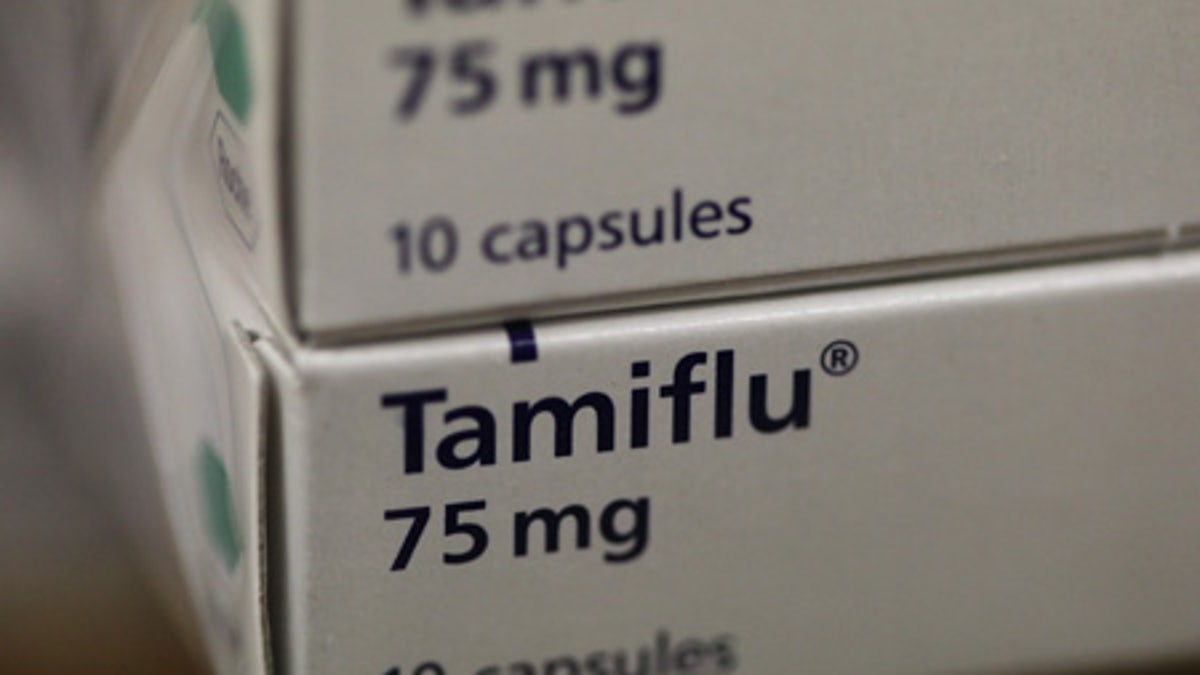
A team of international researchers and medical experts asserts the anti-flu drug oseltamivir, more commonly known as Tamiflu, does not do what it’s prescribed to do – and the evidence to back up the pharmaceutical company’s claims about the drug is severely incomplete.
According to a recent report published in The Cochrane Library, the team sorted through 16,000 pages of evidence to come up with their conclusions. This included everything from clinical trials, documents sent to licensing agencies and unpublished research that had never before been cited.
The report was spearheaded by Dr. Tom Jefferson, a reviewer for the Cochrane group, as well as an independent epidemiologist. It was funded by the National Institute for Health Research Health Technology Assessment (NIHR HTA) program. Jefferson and his team found - mostly from unpublished trials - that while Tamiflu did reduce the symptoms of influenza within 21 hours of taking the medicine, it did not reduce the amount of people needing hospitalization later on in the disease.
“We also found no evidence that it stops complications [from the illness],” Jefferson said. “It also may interfere with the production of antibodies and doesn’t affect transmission, say to your husband or your daughter, for example. That’s really important because, stopping complications and transmission were the main reason for stockpiling the drug.”
International governments have spent billions on stockpiling neuraminidase inhibitors like oseltamivir since 2002 to keep in check with World Health Organization (WHO) guidelines. But the Cochrane review highlights the deficiency in research that was used to justify licensing the drug in the first place.
“We also found no evidence that it stops complications [from the illness]. It also may interfere with the production of antibodies and doesn’t affect transmission, say to your husband or your daughter, for example. That’s really important because, stopping complications and transmission were the main reason for stockpiling the drug.”
The report claims that data from 60 percent of people who have been involved in phase III treatment trials of oseltamivir have never been published. This includes, according to Jefferson, the biggest trial on the drug ever conducted with more than 1,400 people involved.
“Not only was it never published, but a good deal of evidence was not even sent to the European regulators,” Jefferson said. “Most trials they had are incomplete, missing a second, third, fourth, and fifth part. We only have one full report [on the drug], which is the only report that was sent to the European medicine agencies.”
The one complete, published report on Tamiflu is more than 8,500 pages long. The consolidated version of that report, which was sent to European regulators and the CDC was only six pages in length.
Even with the extensive amount of research the Cochrane group utilized, the team made repeated requests to the Tamiflu’s manufacturer, Roche Pharmaceuticals, to have the most complete research possible. But they only received a proportion of the data they needed, according to the researchers. However, Roche denies the allegations that Cochrane claims, saying they have been completely transparent with their research.
“Roche provided the Cochrane group with access to 3,200 pages of very detailed information, enabling their questions to be answered,” said Tara Iannuccillo, a representative for Roche. “Roche has made full clinical study data available to health authorities around the world for their review as part of the licensing process. It is the role of global health authorities to review detailed information on medicines when assessing benefit/risk.”
Because of the major discrepancies Cochrane found in regards to the published and unpublished research as well as what was used to justify the production of the drug, the Cochrane group is calling for a much more thorough investigation of Tamiflu.
“Any kind of decision cannot be made on the basis of published information alone. You have to look at all the evidence,” Jefferson said. “The CDC continues to cite evidence and trials that the [British Medical Journal] has shown for which the authors do not have the right data. Even when the authors say they don’t have access to data or didn’t write the trial report and an unnamed ghost writer does, the CDC keeps on citing it.”
But most importantly, Jefferson cautions against the potential implications of prescribing drugs based on incomplete evidence.
“If you start a job, you have to finish it,” Jefferson said. “And it’s important because it’s not just any drug. Because I could be prescribing it to you, and I could have no idea what it really does.”
